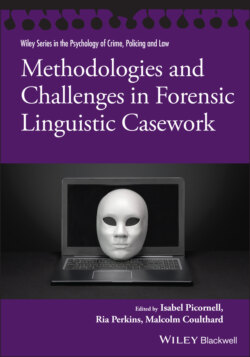Читать книгу Methodologies and Challenges in Forensic Linguistic Casework - Группа авторов - Страница 11
INTRODUCTION AND CONTEXTS
ОглавлениеForensic linguistics has come a long way since the term was first used in Jan Svartvik’s publication The Evans Statement: A Case for Forensic Linguistics in 1968. Since then, an increasing body of research has contributed to the growth and professionalism of this multi- and cross-disciplinary field, with practitioners regularly undertaking forensic linguistic casework.
Forensic linguistics, broadly speaking, is the science of language analysis in a legal context and grounded in established linguistic theory, with practitioners applying linguistic knowledge and methodology to answering questions raised about the status, meaning, and authorship of the communication. Forensic linguistics can be seen as an area of applied linguistics in which techniques of linguistic analysis are applied to forensic situations and data. Linguistics involves the analysis of written texts or spoken interaction by describing and explaining the nature of the communication on a number of linguistic levels using a variety of interpretative tools, theories, and methods. Forensic linguistics essentially takes the linguist’s toolbox and applies it in forensic contexts, where text and speech samples are often unhelpfully short and few in number, in contrast to the large data collections traditionally used in academic research.
